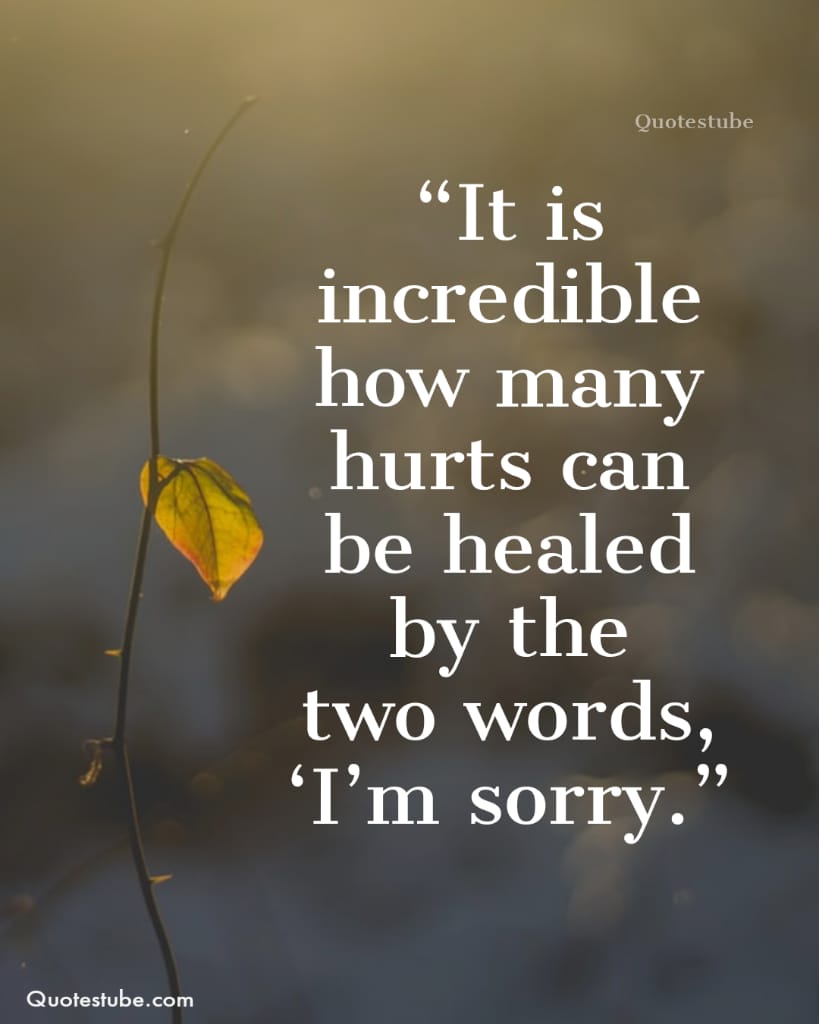So why is it so hard – and heard so infrequently?
Which two small words are among the hardest to utter as a leader – yet among the most powerful?
‘I’m sorry’ – rarely heard from the mouths of leaders, most appreciated by those around them that they influence.
For such a simple utterance can convey a significant message – or messages: I’ve listened, reflected, taken responsibility, assessed and accepted the impact of my words/actions; I’ve shown that I am flexible enough to change my thinking/actions for the good of others, I’m not too self-important to stick with a ‘my way of the highway’ approach to life and I care about the dynamics of my team.
When it comes to a list of leadership attributes, those two oh so difficult to say words just about tick all the boxes.
So why are they so hard – and heard so infrequently?
Perhaps those seeking to establish themselves as leaders of any group believe an apology shows vulnerability and weakness, an indecisiveness when an exhibition of moral courage and decisiveness is required.


Maybe people worry that apologising indicates, in some way, that they are prepared to be undermined by those around them.
And, undoubtedly worse these days, is the media spin associated with high profile apologies. Take PM Liz Truss and her rollercoaster first few weeks in office.
She has launched a controversial, to say the least, economic policy and then retracted a key tranche of it after being pilloried by huge swathes of the electorate – not to mention her own colleagues.
Her failure to apologise and admit she and her Chancellor seriously misread the room meant the media had an absolute field day with her U-turn, ineffectual leadership style, weak character…you name it.
In comparison, the former Chancellor Nadim Zahawi was forced to utter an apology on behalf of the Government when he was challenged about the policy on BBC Question Time.
‘Of course I’m sorry, absolutely,’ he said under pressure from fellow panellist Piers Morgan, adding: ‘By the way there’s nothing wrong with saying “I get it, I’ve listened, and I’ve acted, and 95 per cent of what I want to do I’m going to deliver, and I’ll drop the 5 per cent,” that’s a good thing.’
Politics to one side, he’s right about the listening and acting aspect, yet one gets a sense of sneering in the press about his apology, a negative undertone. Rather, where’s the celebratory tone, the ‘good for him for saying sorry to the public, that’s what decent leaders do’?
Meaning it and not attaching blame to others or any conditions are naturally key to a genuine apology.
But to all of you who believe saying sorry indicates weak leadership, I’d say ‘wrong – the polar opposite is true.’
It shows you are self aware, mindful and working for the good of the wider team not just yourself on some individualistic crusade regardless of consequences and casualties along the way.
I’m not for one minute suggesting they are easy words to say. Just that they are necessary and incredibly powerful.


